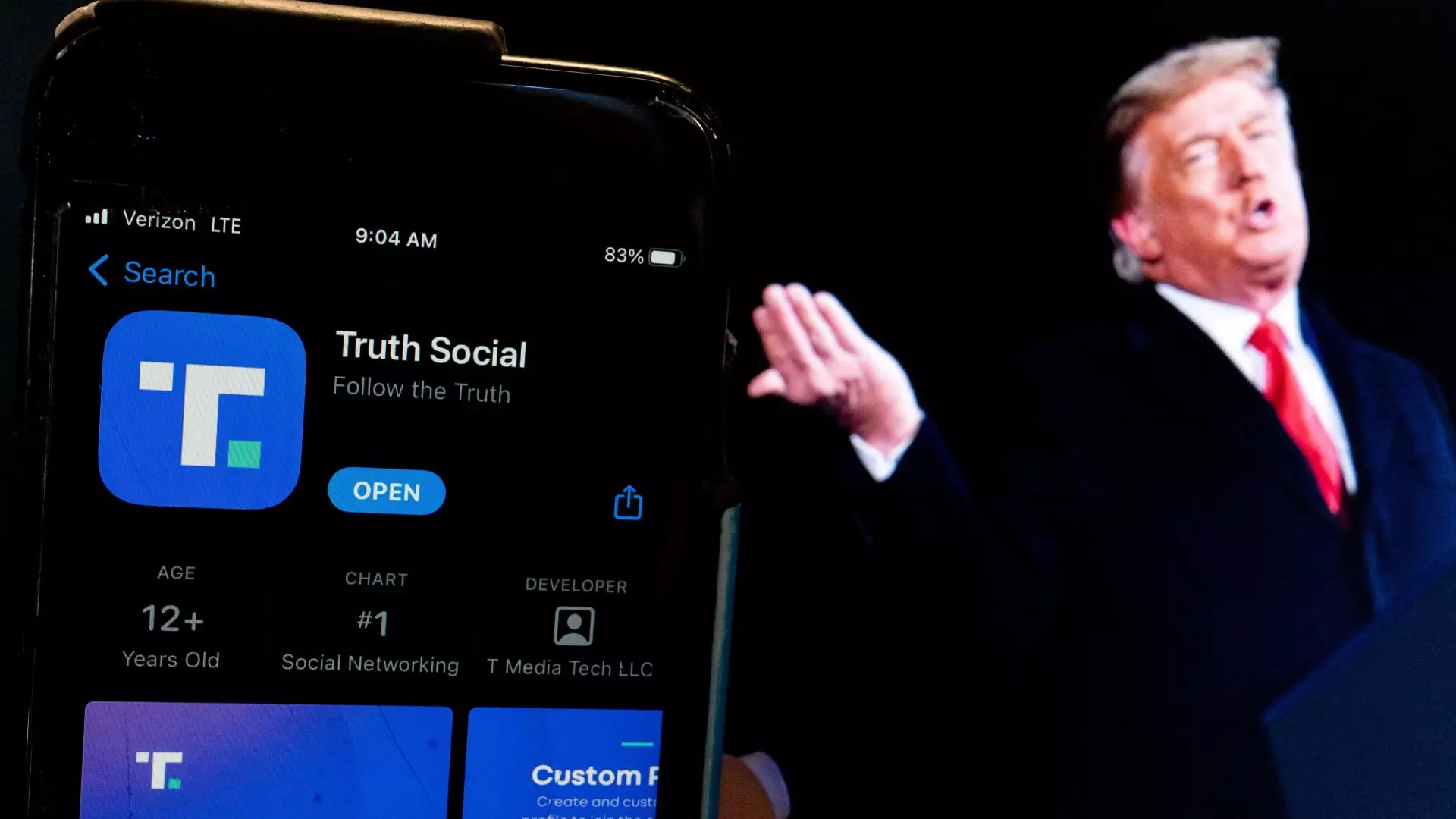In an unexpected but not entirely surprising development, Trump Media has announced its foray into the financial services sector with the establishment of a new division named Truth.Fi. This decision marks a significant expansion for the company, best known as the parent of Truth Social, a platform dedicated to promoting free speech. As the details of this venture unfold, it raises numerous questions about its implications, the motivations behind it, and its potential impact on both the financial market and the ongoing discourse surrounding businesses that cater to conservative ideologies.
The Launch and Initial Reaction
On Wednesday, shares of Trump Media, traded under the ticker symbol DJT, surged by 8% following the announcement. This jump indicates a favorable reception from the market, displaying investor confidence in the company’s strategic direction. President Donald Trump, who ostensibly retains an indirect ownership stake through a revocable trust holding 114,750,000 shares, adds a layer of intrigue to the venture. Clearly, the backing of such a high-profile figure in the political arena fuels speculation about the sincerity and viability of this new business line.
Truth.Fi is set to start with an initial investment of up to $250 million, to be managed in partnership with Charles Schwab. This partnership suggests a level of professionalism and respectability that might be crucial for establishing credibility in a competitive financial landscape. The funds will reportedly be directed towards customized exchange-traded funds (ETFs) and cryptocurrencies, diversifying the investment landscape for its clients in a time when digital assets are gaining allure among retail investors.
Devin Nunes, the CEO and Chairman of Trump Media, articulated that the formation of Truth.Fi is a natural progression following the launch of the Truth Social platform and a TV streaming service. It signals an intention to create an entire ecosystem catering to what Nunes describes as “American First” interests. This phrase is emblematic of a growing movement among certain groups—particularly conservative activists who feel alienated or unfairly treated by mainstream media and financial institutions.
The core message emerging from the Truth.Fi initiative is that it seeks to empower American patriots. By providing investment opportunities that focus on “American growth, manufacturing, and energy companies,” as well as investments bolstering these ideologies, Truth.Fi positions itself not merely as a financial service provider, but as a bastion of support for conservative values in an environment that many perceive as hostile to their beliefs.
Trump’s comments during a recent World Economic Forum addressed concerns about perceived discriminatory practices by major banks against conservatives, citing experiences with banks like Bank of America and JPMorgan Chase. This charge resonates with a faction of the Republican base that sees big banks as part of a broader “woke” establishment that undermines their values. The announcement of Truth.Fi comes at a time when these sentiments are particularly amplified, highlighting an urgent need for alternatives that cater to conservative philosophies.
The grievances expressed by Trump and many Republicans are not isolated. The trend of de-banking—where individuals or businesses feel unjustly denied access to financial services based on political or religious affiliations—has received increasing scrutiny. In this light, Trump Media’s venture may be interpreted as a direct response to these growing frustrations, presenting itself as a solution in an environment perceived to be stifling for conservative voices.
Potential for Competition and Industry Impact
Truth.Fi’s entry into financial services could also position it as a potential competitor to other innovative platforms like Elon Musk’s X, which recently signed a partnership with Visa to broaden its services beyond social media. The implications of this rivalry may extend beyond mere competition; they could signify a deeper ideological battle over who can lay claim to the financial future of disenfranchised segments of society.
As the Trump brand continues to extend its reach into diverse sectors, including digital currencies and finance, the effectiveness of Truth.Fi will ultimately depend on how well it navigates the complexities of the market and the regulatory landscape. Alongside maintaining alignment with its foundational values of free speech and patriotism, it will face the challenge of convincingly presenting itself as a trustworthy financial institution to a broader audience.
Truth.Fi represents a significant pivot for Trump Media within the ongoing narrative surrounding American conservatism and its place in modern finance. Whether this venture will thrive or falter remains to be seen, but it undeniably adds another layer to the evolving relationship between politics, commerce, and public sentiment in today’s society.

